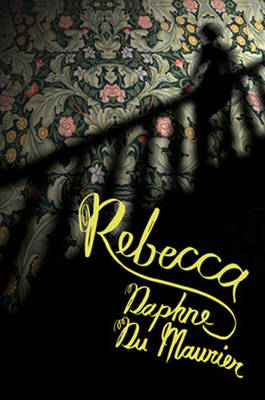Reviewed by gmcgregor on
But when they get to Manderly, things go quickly south. Being middle-class, she's barely been in a place like this, and hasn't the slightest idea how to make it her own. Her husband is suddenly distant and moody. Her only real friend is the spaniel dog that she takes her walks with. The head housekeeper, Mrs. Danvers, all but openly sneers at her and constantly reminds her that she's not anything like the charming and passionate Rebecca. And it's not just Mrs. Danvers...even the locals she goes to visit tell her over and over again how exciting things were when Rebecca was around, how beautiful she was, how delightful. The shy, quiet second Mrs. deWinter begins to despair of ever being good enough for the role she's been handed, and is talked into putting on a costume ball (like the ones Rebecca used to have!) that changes everything.
If you've ever heard about super fast marriages Back In The Day and wondered if people even really knew each other when they go married, Rebecca answers that question with a resounding no. A major part of the drama comes from the fact that the young wife can't understand why Maxim married her and is afraid to share her fears and feelings of inadequacy because, well, she barely knows him. She tortures herself by imagining that he's constantly comparing her to Rebecca, and she's sure she comes up short. She can't even hide from the imposter syndrome that's consuming her...the very place she lives reminds her of the ways in which she feels inadequate. This book is often billed as a gothic romance, and while the former is accurate, the latter isn't really, in my opinion: there's a marriage at the center of it, but not really a romance per se.
Instead, I'd call this a psychological suspense novel. We know from the beginning that the deWinters no longer live at Manderly, that something bad happened there. How exactly this happens unwinds over the course of the book, with the inner lives of the characters and their relationships with each other being driving the action. And the story is well-told and well-paced, but it's still a classic rather than a modern-day thriller, so while it's certainly gripping it's not really a page-turner that'll keep you up all night. And for me, that's preferable anyways. I really enjoyed reading it and plan to add more duMaurier to my list of books to read. I'd recommend Rebecca to just about anybody, it's a tightly crafted and engaging story that'll appeal to anyone who's ever felt like they were playacting at being a grown-up.
Reading updates
- Started reading
- 29 December, 2017: Finished reading
- 29 December, 2017: Reviewed
